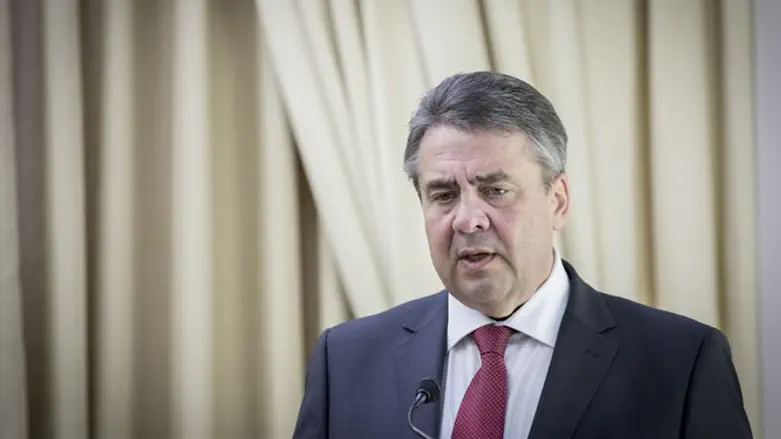
Germany warned on Tuesday against U.S. recognition of Jerusalem as Israel’s capital or the moving of the U.S. embassy from Tel Aviv to Jerusalem.
"Recognizing Jerusalem as the capital of Israel does not calm the conflict, but rather exacerbates it even further. It's in everyone's interest that such a move does not happen," said German Foreign Minister Sigmar Gabriel.
He added that "the solution to the status of Jerusalem can only be determined by direct negotiations between the Israelis and the Palestinians. That is why we reject any step that could lead to an escalation between the two sides. Germany remains committed to the two-state solution in the Middle East."
Gabriel’s remarks followed a warning earlier on Tuesday by the European Union’s (EU) High Representative for Foreign Affairs, Federica Mogherini, who said there would be “serious repercussions” if the U.S. recognizes Jerusalem.
"Since early this year, the European Union was clear in its expectation that there can be reflection on the consequences that any decision or unilateral action affecting Jerusalem's status could have," Mogherini's office said in a statement.
"It might have serious repercussions on public opinion in large parts of the world. The focus should therefore remain on the efforts to restart the peace process and avoiding any action that would undermine such efforts," the statement added.
On Monday, the EU’s envoy to Israel, Emanuele Giaufret, hinted that even if U.S. President Trump recognizes Jerusalem as the capital of Israel, the European Union does not intend to follow suit.
"The connection between the Jews and Jerusalem cannot be denied. There is no one who can deny this connection. Having said that, our embassy is in Tel Aviv, like all the other countries’ embassies, and it will probably remain there. We do not think that a significant step on the issue of Jerusalem right now will help the diplomatic process," said Giaufret.
Arab leaders have similarly urged Trump not to follow through with the move. Morocco's King Mohammed VI wrote a letter to Trump in which he expressed his "deep personal concern" and "the great concern felt by Arab and Muslim states and peoples" over moves to recognize Jerusalem as Israel's capital and transfer the U.S. embassy there.
Egyptian President Abdel Fattah Al-Sisi, one of Trump's closest allies in the Middle East, also urged the U.S. president to be cautious regarding an embassy move.
In a phone call, Sisi urged Trump "not to complicate the situation in the region by taking measures that jeopardize the chances of peace in the Middle East", the Egyptian leader's spokesman Bassem Radi said in a statement.
Saudi Arabia's King Salman also weighed in on the issue, warning Trump that moving the U.S. embassy to Jerusalem was a "dangerous step" that could rile Muslims worldwide.
"Moving the U.S. embassy is a dangerous step that provokes the feelings of Muslims around the world," state-run Al-Ekhbariya TV quoted King Salman as telling Trump in a phone call.
Turkish President Recep Tayyip Erdogan, meanwhile, warned the United States not to recognize Jerusalem as Israel’s capital or to move the embassy there, saying that any change to the status quo vis-à-vis Jerusalem would constitute a “red line” for Muslims.